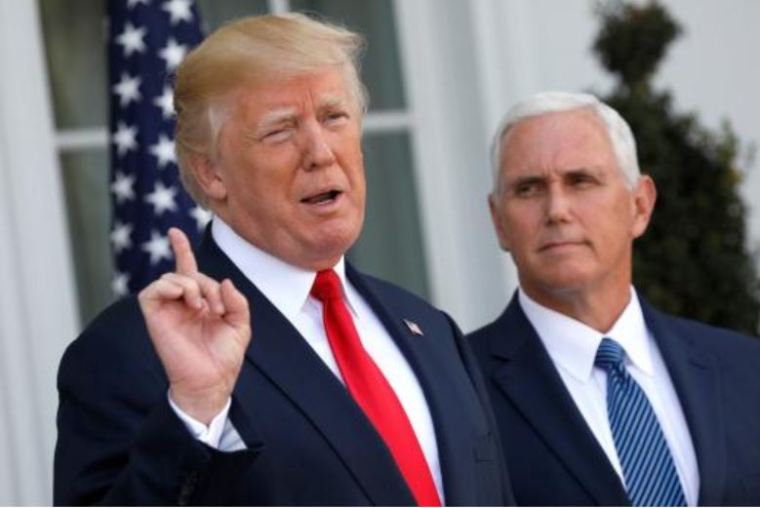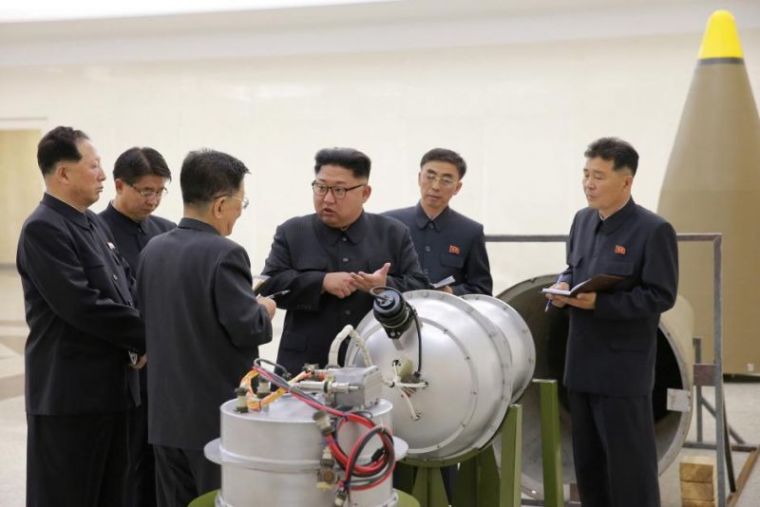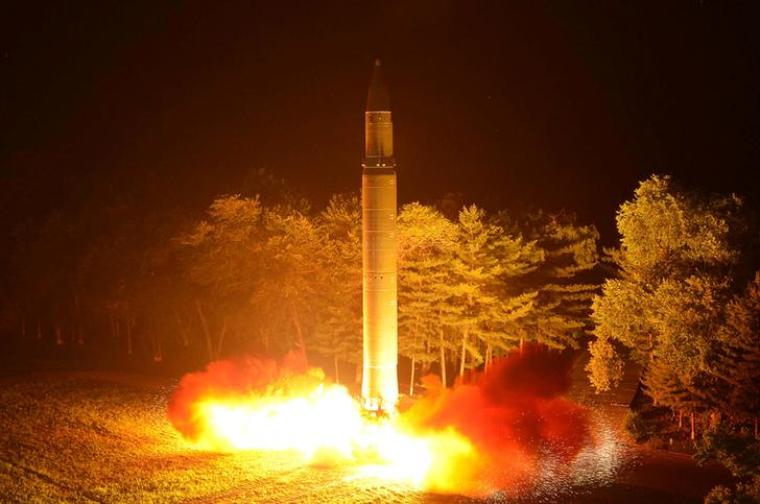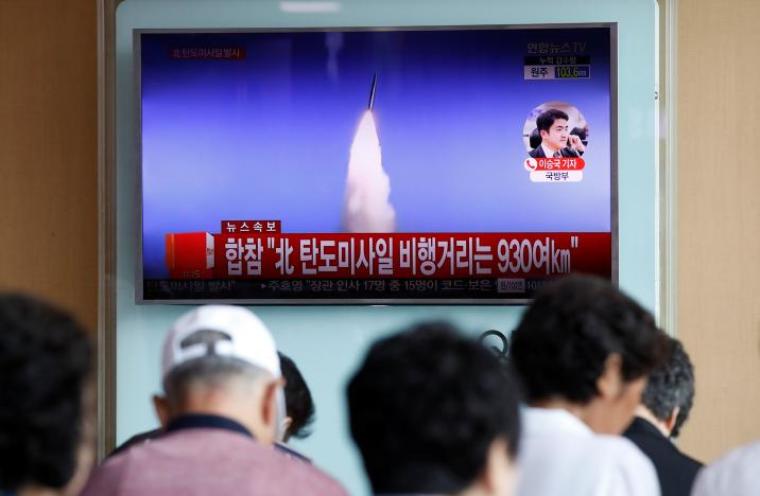Trump Condemns 'Appeasement' of North Korea After Hydrogen Bomb Test
WASHINGTON — U.S. President Donald Trump admonished South Korea, a key ally, for what he termed a policy of "appeasement" after North Korea claimed to have tested an advanced hydrogen bomb for a long-range missile on Sunday.
On Twitter, Trump said: "South Korea is finding, as I have told them, that their talk of appeasement with North Korea will not work, they (North Korea) only understand one thing!"
It was the latest signal that Trump is losing patience with the international community's response to the increasingly belligerent regime of North Korean leader Kim Jong Un. Last week, Trump tweeted that "talking is not the answer" in terms of dealing with Pyongyang.
On Sunday, Trump also tweeted that North Korea's "words and actions continue to be very hostile and dangerous to the United States" and said the regime "has become a great threat and embarrassment to China, which is trying to help but with little success."
The White House said Trump's national security team was "monitoring this closely" and that the president would convene a meeting of his advisers later on Sunday.
North Korea said it had tested an advanced hydrogen bomb for a long-range missile on Sunday, setting off a manmade earthquake near the test. Japanese and South Korean officials said that tremor was about 10 times more powerful than the one picked up after the nation's last nuclear test a year ago.
There was no independent confirmation that the detonation was a hydrogen bomb rather than a less powerful atomic weapon of the kind Pyongyang has tested in the past.
In his tweet on Sunday, Trump appeared to be blaming South Korea for a policy it abandoned years ago of trying to soften North Korea's posture through economic aid.
South Korea's new President, Moon Jae-in, has argued for continuing dialogue with its neighbor over its nuclear program, while also supporting international sanctions.
Reports that the United States is considering pulling out of its trade deal with South Korea has also ratcheted up tensions with the country.
Despite Trump's tweets, U.S. Treasury Secretary Steven Mnuchin suggested the U.S. would continue to attempt to pressure North Korea economically.
Mnuchin said on Sunday that he would put together a package of new sanctions to potentially cut off all global trade with Pyongyang.
"If countries want to do business with the United States, they obviously will be working with our allies and others to cut off North Korea economically," Mnuchin said on "Fox News Sunday."
Trump's cabinet has at times tried to show the president's tweets are not shifts in official U.S. policy. Last week, after Trump said that "talking is not the answer," Defense Secretary James Mattis followed up by saying: "We're never out of diplomatic solutions."
Secretary of State Rex W. Tillerson has previously suggested that the U.S. would be open to talks with North Korea if it ceased its missile tests and met other conditions.
Senator Jeff Flake, a member of the Senate Foreign Relations Committee, said on CNN's "State of the Union" on Sunday that the United States had no good options when it came to North Korea.
"Obviously the test yesterday shows they are further along than everyone figured," said Flake, a Republican. He said sanctions did not appear to have slowed the advance of North Korea's nuclear program, "but I don't think harsh rhetoric does either."
Often critical of Trump, Flake declined to address his comment about South Korea's "talk of appeasement," but said: "I think South Korea will be with us whatever we decide."
Reporting by Steve Holland and Susan Cornwell; Writing by Joel Schectman and James Oliphant; Editing by Mary Milliken and Lisa Von Ahn

































